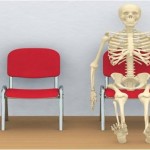
Can you imagine how frustrating for patients it must be to wait for a surgical consultation only to be told you don’t need surgery and then be sent away. Then enter the Advanced Physiotherapy Practitioner whose roles beyond those of a regular physiotherapist include activities traditionally the role of medical staff such as; screening patients pre- and post-operatively, triaging patients for surgery, prescribing conservative management and monitor patients on an ongoing basis. These roles provide an ideal opportunity to educate patients on treatment options and how to manage their symptoms. The purpose of this role is to improve patient access to timely surgical care by reducing wait times for surgery.

Advanced Physiotherapy Practitioners roles include activities traditionally the role of medical staff.
Extended scope or advanced practice roles for physiotherapists arose in the United States following the Vietnam War and have been established for over 20 years in the United Kingdom. These shifts in traditional roles are responses to the high demand and costs for healthcare. But how effective are these roles compared with traditional healthcare provision in patients with musculoskeletal disorders? This was the purpose of a recent systematic review by authors from Canada.
Here’s what they did
The authors searched 3 databases (Medline, Cinahl and Embase) for articles published between 1980 and 2011. Sixteen studies were included and were assessed by pairs of raters and were of variable methodological quality.
Here’s what they found
Included studies varied in designs and objectives and were categorized in four areas:
- diagnostic agreement or accuracy compared to medical providers,
- treatment effectiveness,
- economic efficiency
- patient satisfaction.
- Their findings of the studies were consistent and suggest that Advanced Physiotherapy Practitioner care may be as (or more) beneficial than usual care by physicians for patients with musculoskeletal disorders across all categories
The authors concluded
“Physiotherapists in Advance Physiotherapy Practitioner roles provide equal or better usual care in comparison to physicians in terms of diagnostic accuracy, treatment effectiveness, use of healthcare resources, economic costs and patient satisfaction.”
The Musculoskeletal Elf’s view
 It was interesting to see the variability of settings in which advanced practitioners work. The settings in which these studies took place included: orthopaedic clinics, emergency departments, a military hospital clinic, a specialized outpatient musculoskeletal clinic, a physical therapy department, and a paediatric rheumatology clinic. The roles included; communicating a medical diagnosis; triaging patients to be seen by physicians
It was interesting to see the variability of settings in which advanced practitioners work. The settings in which these studies took place included: orthopaedic clinics, emergency departments, a military hospital clinic, a specialized outpatient musculoskeletal clinic, a physical therapy department, and a paediatric rheumatology clinic. The roles included; communicating a medical diagnosis; triaging patients to be seen by physicians
or specialists for consultation or surgery; ordering of diagnostic tests (imaging or laboratory); conservative treatment recommendations that may include medication prescription and/or injection; referral to other health care providers including to
physiotherapists.
Are you an Extended Scope or Advanced Physiotherapy Practitioner? Are you working in any of these settings and providing these roles? Perhaps you have some other role to share with the community.
Please send us your comments on this blog and become part of the ever expanding Musculoskeletal Elf community.
Links
- Desmeules F, Roy J, MacDermid JC, Champagne F, Hinse O,Woodhouse LJ Advanced practice physiotherapy in patients with musculoskeletal disorders: a systematic review BMC Musculoskeletal Disorders 2012, 13:107 doi:10.1186/1471-2474-13-107

I certainly think that ESP/Advanced Practice roles can be advantageous in the musculoskeletal setting. Most ESP’s have substantially more experience that registrars and occasionally consultants. Therefore in terms of diagnostic accuracy, referral for diagnostic investigations and overall management, ESP’s provide a huge cost saving to health services.
The role of the ESP continues to expand, with many of us in secondary care also listing patients for surgery and where required (in case of “emergency”), admitting patients into secondary care under an on-call team. The relationship that we have with Orthopaedic consultants has become increasingly respectful, with each having a greater understanding of the others’ role.
The disadvantage of working in a more “diagnostic” role is in maintaining physiotherapeutic clinical skills. Many ESPs spend more than 50% of their time in a “clinic” role, and up to a further 25% with managerial responsibility and/or research time. How do we ensure our hands on clinical skills are maintained, and who provides training, both for our triage/diagnostic role and also our hands on clinical role?
More specialized roles basically.